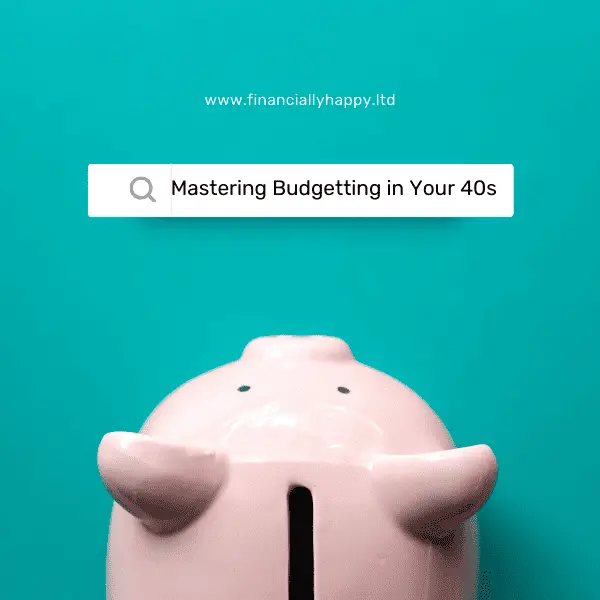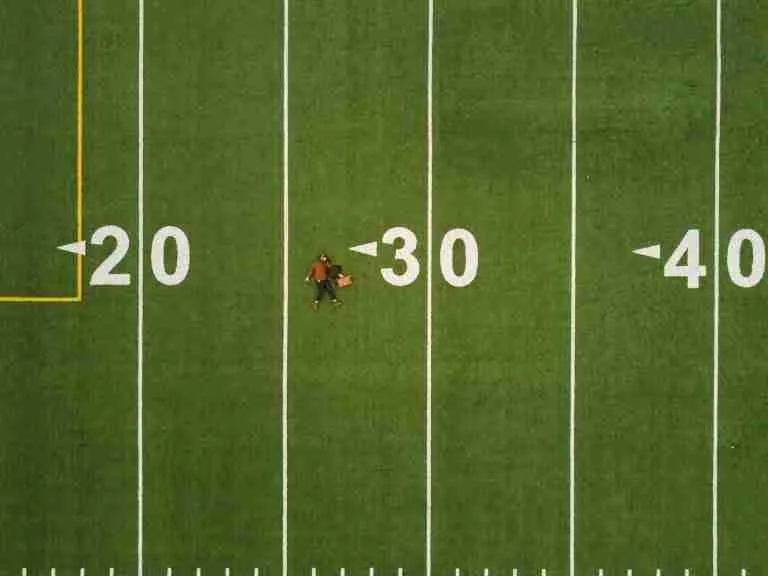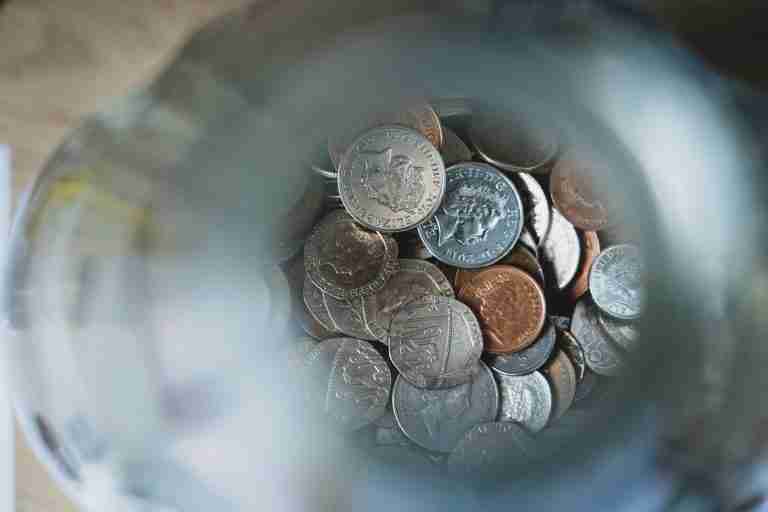Why am I always broke? (Important tips on how to stop being broke)
It’s the age-old question that has plagued many people over the years: why am I always broke?
There are many different reasons why you might find yourself in this situation. Still, some of the most common ones include spending too much money on unnecessary things, not budgeting properly, and not saving enough money.
If you want to start getting your finances in order, there are a few steps you can take to help get you on the right track.
First, create a budget and stick to it as closely as possible. Second, make sure you’re saving money for emergencies and other unexpected expenses.
And finally, try to cut down on your spending as much as possible.
In this article, we will explore these tips to help you get your finances in order and stop you from being broke.
Table of Contents

The top 6 reasons why people are always broke
If you want to start getting your finances in order, there are a few steps you can take to help get you on the right track.
Here are the top 6 reasons why people are always broke.
Poor money management skills
One of the main reasons you might find yourself in a situation where you are constantly broke is that you do not have good money management skills.
This means you are not good at budgeting their money, tracking their expenses, or saving for the future.
If you want to start getting your finances in order, developing good money management skills is important.
This will help you stay on track and make saving money for emergencies and other unexpected expenses easier.
Spending too much money
Another reason why you can find yourself in a situation where they are constantly broke is that they spend too much money on unnecessary things.
This can include things like eating out, buying new clothes, or travelling. If you want to start getting your finances in order, you need to learn how to curb your spending.
Lack of discipline
Lacking discipline over your spending and saving is a major cause of going broke.
This means you are not good at sticking to a budget or saving for the future. If you want to start getting your finances in order, you need to develop discipline and make it a habit to stick to your budget and save money for the future.
Debt
Another reason why you can find yourself in a situation where they are constantly broke is that they have debt.
This means that they owe money to other people or institutions. If you want to start getting your finances in order, you need to get out of debt and stay out of debt. This can be a difficult task,
Procrastination
You might often find yourself in a situation where you are constantly broke is because you procrastinate on making important money decisions.
This means that you put off doing important things, like budgeting or saving money. If you want to start getting your finances in order, you must stop procrastinating and start taking action to build your financial security.
Not having a plan
The final reason you might find yourself in a situation where they are constantly broke is that you don’t have a plan.
This means you have no financial goals and are just winging it. If you want to start getting your finances in order, you need to develop and stick to a financial plan.
This will help you stay on track and make it easier to achieve your financial goals.
How to create a budget and stick to it
If you want to start getting your finances in order, one of the first things to do is create a budget and stick to it as closely as possible.
A budget will help you keep track of your expenses and make it easier to stay within your budget. It will also help you save money for emergencies and other unexpected expenses.
Once you have created your budget, it’s important to make sure you stick to it as closely as possible. This means tracking your income and expenses
How to create a budget
There are a number of different ways to create a budget, but the best way to do it is to figure out what your monthly income is and then divide it up into different categories.
You can use this budget template to help get you started
Once you have created your budget, it’s important to make sure you stick to it as closely as possible.
This means tracking your expenses and ensuring you don’t exceed your budgeted amount for each category. If you are constantly going over budget, you need to adjust your budget accordingly.
Be kind to yourself; it’s not a failure to exceed your budget. It’s just another way to learn how to manage your money better next time.
Tips for sticking to your budget
When creating your budget, it’s important to make sure it is realistic and achievable. This means setting goals that you know you can actually accomplish.
If your budget is too restrictive, you are more likely to break it and end up in the same situation you were in before.
Give every dollar a job to do.
When creating your budget, you need to be mindful of every dollar that comes in and goes out.
Make sure you are also budgeting for short-, medium- and long-term fun things. If you are only budgeting for the short term, you will have a difficult time reaching your long-term financial goals.
A great way to get your finances in order is to create a savings goal and make a plan to achieve it. This will help you stay motivated and disciplined.
Being clear about what you want most vs what you want right now will help you focus on the real goal for your money and not short term wants for more stuff.
Benefits of having a budget
The benefits of budgeting are numerous and include
- Knowing where your money is going
- Living within your means
- Saving money for emergencies and other unexpected expenses
- Developing a financial plan and reaching your financial goals.
9 ways to reduce your expenses and save more money
If you want to start getting your finances in order, one of the best things you can do is reduce your expenses and save more money.
This will help you free up more money to put towards savings or other financial goals. There are a number of different ways to reduce your expenses, but here are 9 to get started with:
1. Cut back on eating out
One of the easiest ways to reduce your expenses is to cut back on eating out. This can be difficult, but you can save a lot of money if you make a concerted effort to cook at home more often.
2. Cancel unused subscriptions
Another easy way to save money is to cancel any unused subscriptions. This could include things like cable TV, Netflix, gym memberships, etc.
3. Negotiate a lower rate with your cell phone and utility providers
Negotiating a lower rate with all your suppliers is a great way to cut waste and save a lot of money monthly. This may feel awkward trying to haggle a better rate, but it could save you a lot of money in the long run. Your money.
4. Make your own cleaning products
One way to save money is to make your own cleaning products. This can be done by using simple ingredients like vinegar and baking soda.
5. Make your own lunch
Another way to save money is to brown-bag your lunch/ take your own lunch in instead of eating out. This can save you a lot of money over time.
6. Use public transportation or walk.
If you live in a city, using public transportation can greatly save money on transportation costs.
Or even cheaper, you can walk or cycle if this is possible.
7. Switch to a low-cost phone plan
If you are currently paying too much for your phone plan, switching to a low-cost plan is one of the best things you can do. This could save you a lot of money each month.
8. Downsize your home
If you are currently living in a large home, one way to reduce your expenses is to downsize to a smaller home. This will help you save on utility costs and other related expenses.
9. Stop buying bottled water
Get yourself a water bottle and fill up at homework. This could save you a lot of money over time.
Why it’s important to have an emergency fund
An emergency fund is a savings account that is specifically earmarked for unexpected expenses.
Having an emergency fund is important because it helps you avoid going into debt when something unexpected happens. It also gives you peace of mind knowing that you have a cushion to fall back on in case of emergencies.
Reasons why an emergency fund is important
There are a number of reasons why having an emergency fund is important. Some of the most important ones include:
1. It helps you avoid going into debt when something unexpected happens.
2. It gives you peace of mind knowing that you have a cushion to fall back on in case of emergencies.
3. It can help you pay for unexpected expenses, like car repairs or medical bills.
4. It can help you cover your living expenses if you lose your job.
5. It can help you pay for an unexpected trip or vacation.
How to build an emergency fund
If you want to build an emergency fund, you can do a few things to make it easier. Some of the best ways to do this include:
1. Cut back on eating out and cook at home more often.
2. Cancel any unused subscriptions.
3. Sell things lying around your house you no longer need
4. Negotiate a lower rate with your cell phone provider.
5. Set up a separate account just for your emergency savings and automate payments into it.
How to get out of debt and stay out of debt
Debt can be a very troublesome thing to deal with, and it can be hard to get out of debt once you fall into it. However, you can do a few things to help get yourself back on track.
Some of the best ways to do this include:
1. Create a budget and stick to it as closely as possible.
2. Look into getting a part-time job to help build up your savings.
3. Open a separate savings account specifically for your emergency fund.
4. Invest in a high yield savings account.
5. Consider selling some of your belongings to help raise money for your emergency fund.
The importance of financial planning
The number one way to get what you want is to have a plan.
You must consider a few things in your plan when considering your life and money.
- What are your goals in every area of your life?
- What action will you need to take to reach your goals?
- What money do you have or will need to create to help you reach your goals?
- How will you execute your plan?
We undertake this process with our clients in our GAME Plan process.
When it comes to your finances, it’s important to have a plan in place.
Financial planning can help you stay on track with your spending and save money for the future. It can also help you get out of debt and stay out of debt.
There are a number of different financial planning strategies that you can use, and the best one for you will depend on your individual circumstances. Some of the most common financial planning strategies include:
1. Creating a budget and sticking to it as closely as possible.
2. Saving money for emergencies and other unexpected expenses.
3. Investing money for the future.
4. Paying down debt.
5. Planning for retirement.
6. Planning for a major purchase like a house.
Without the above planning tools reaching your goals is going to be a matter of chance, not planning.
Conclusion Why am I always broke
Keeping your finances in order can be tough, but following a few simple steps can help you get started.
Make sure you create a budget and stick to it, save money for emergencies, and reduce your expenses as much as possible. These tips should help you start getting your finances in order and stop you from being broke all the time.
It’s usually not because of a single issue if you’re always broke.
Many possible reasons for your lack of savings or budgeting problems need to be addressed.
If you want to start getting your finances in order and stop being broke all the time, make sure you create a budget and stick to it as closely as possible while also making an emergency fund and cutting back on spending wherever possible.
Following these steps should help get things under control so you can spend less money on unnecessary items without feeling like there is something wrong with yourself every day!
If you want any help with stopping being broke, set up a call and start you financially happy journey asap.
FAQ for why am I always broke
1. What are some of the most common reasons for being constantly broke?
There are many different reasons someone might find themselves in this situation, but some of the most common ones include spending too much money on unnecessary things, not budgeting properly, and not saving enough money.
2. How can I start getting my finances in order?
You can take a few steps to help get you on the right track. First, create a budget and stick to it as closely as possible.
Second, make sure you’re saving money for emergencies and other unexpected expenses.
Third, look into getting a part-time job to help build up your savings.
Fourth, open a separate savings account specifically for your emergency fund.
Fifth, invest in a high yield savings account.
Sixth, consider selling some of your belongings to help raise money for your emergency fund.
3. What is the importance of financial planning?
Financial planning can help you stay on track with your spending and save money for the future. It can also help you get out of debt and stay out of debt.
4. What are some of the most common financial planning strategies?
Common financial planning strategies include creating a budget, saving money for emergencies, investing money for the future, paying down debt, and planning for retirement.
5. How will following a financial planning strategy help me stop being broke all the time?
How do you expect to reach your goals without the above planning tools? By following a financial planning strategy, you can create a plan of action that will help you stay on track and achieve your goals. This, in turn, will help you stop being broke all the time.
6. How to get out of debt when you are broke?
One of the best ways to get out of debt when you are broke is to create a budget and stick to it. Figure out how much money you have coming in each month and how much money you have going out each month. If you are spending more money than you are making, you will need to find ways to reduce your expenses.
Use the debt avalanche or snowball to pay off your debts. The debt avalanche is when you pay off your debts from the highest interest rate to the lowest. The debt snowball is when you pay off your debts from the smallest balance to the largest.
Make extra money by getting a second job, selling items you no longer need or finding creative ways to make money.
Keep your focus on your goal of getting out of debt, even when it feels like you will never succeed. Surround yourself with positive people and put up motivational reminders to keep yourself moving forward.
7. What’s the reason why I’m broke
There could be many reasons why you’re struggling financially, but some of the most common ones include: having no clear goals, not earning enough money, spending too much money, racking up too much debt, and not saving enough.
If you want to overcome being broke, you’ll need to address the root of the problem and take actionable steps to fix it.
8. How to overcome being broke?
There are a few things that you can do in order to overcome being broke:
1. Make a budget and stick to it.
2. Cut back on expenses wherever possible.
3. Find ways to make extra money.
4. Live below your means.
5. Stay motivated and focused on what you really want in life.
If you’ve made it this far, congratulations! You’re already taking steps towards a healthier financial future. But maybe you’re feeling a bit overwhelmed. Maybe the of budgeting, saving, and investing still makes you break out in a cold sweat. Don’t worry, you’re not alone, and help is available.
At Financially Happy Money Coaching, I understand money isn’t just about numbers. It’s about emotions, behaviours, and life choices. That’s why we’re here to help you take the stress out of money and build wealth that aligns with your values and lifestyle.
Whether you’re just starting out on your financial journey or you’re looking to take your finances to the next level, we’re here to guide you every step of the way. I’ll help you understand your financial behaviours, set realistic goals, and create a personalized plan to achieve those goals.
So, why wait? Start your journey towards financial happiness today. Remember, the best time to start was yesterday. The second best time is now.
Click here to schedule your consultation and let’s make your money work for you, not vice versa. 💪💰
Remember, financial freedom isn’t a destination; it’s a journey. And every journey is easier when you have a guide. So, let’s embark on this journey together and create a financially happy future. 🚀💸
📚 Financial Freedom Resources
- The Ultimate Guide To Building Your Savings to $100,000! 📘 is a transformative book that equips readers with principles, strategies, and the mindset 🧠 needed to reach a $100,000 savings goal 💰. It’s a journey towards financial freedom 🚀, challenging beliefs 🤔, embracing new habits 🔄, and overcoming obstacles 💪.
- How to Manage Your Finances: Your Guide to Financial Freedom 📘 is a comprehensive resource packed with practical advice on budgeting 💰, investing 📈, reducing debt 💳, and building wealth 💎. It’s an essential guide for anyone, novice or experienced, aiming to take control of their financial future and achieve financial independence 🚀.
Remember, self-study is a powerful tool for life and financial transformation. Happy reading! 🎉
📚 Financial Freedom Resources
- The Ultimate Guide To Building Your Savings to $100,000! 📘 is a transformative book that equips readers with principles, strategies, and the mindset 🧠 needed to reach a $100,000 savings goal 💰. It’s a journey towards financial freedom 🚀, challenging beliefs 🤔, embracing new habits 🔄, and overcoming obstacles 💪.
- How to Manage Your Finances: Your Guide to Financial Freedom 📘 is a comprehensive resource packed with practical advice on budgeting 💰, investing 📈, reducing debt 💳, and building wealth 💎. It’s an essential guide for anyone, novice or experienced, aiming to take control of their financial future and achieve financial independence 🚀.
- Mastering Budgeting in Your 40s: Your Guide to Financial Freedom 📘 is your essential roadmap to financial savvy. Packed with tips on budgeting 💰, investing 📈, and debt management 💳, it’s the perfect toolkit for anyone in their 40s looking to secure their financial future and sail towards independence 🚀.
Remember, self-study is a powerful tool for life and financial transformation. Happy reading! 🎉










